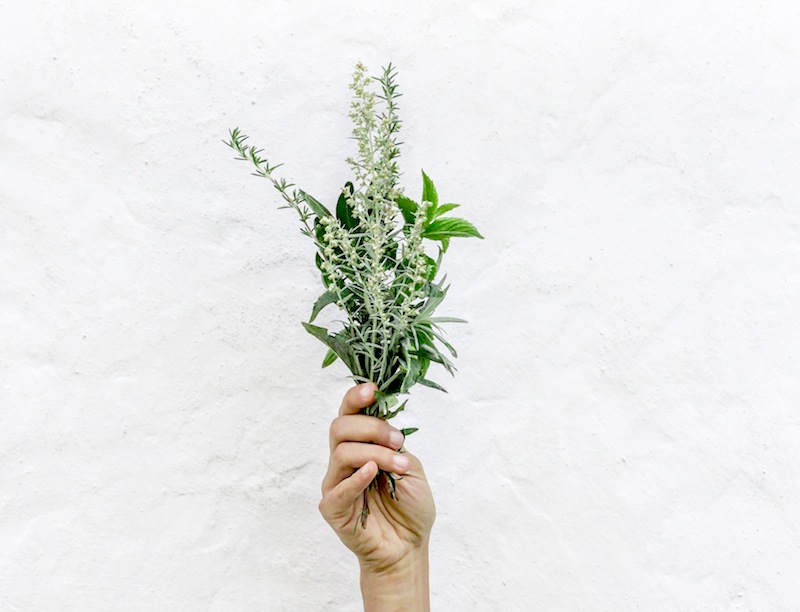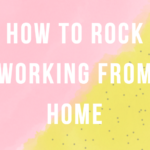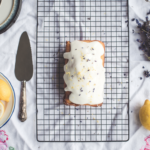
If you are concerned about the number of chemicals in your home; then you’re probably like these natural alternatives to household chemicals. Recent research has revealed countless links between household nasties and health issues; so let’s get a bit savvier about what we spray, rub, wipe and scrub on ourselves and our homes. A gaggle of natural alternatives are now on the market but when is so cheap and easy (and a bit fun) to cut out the middleman and mix up some potions of your own, why not give it a try! Here are some time-honoured, tried and tested, chemical free home solutions.
Bleach
Bet you didn’t know that although bleach kills bacteria, its high pH level not only makes it useless at killing mould, it actually provides it with a food source. So when you think the mould is disappearing before your eyes, it is actually just becoming invisible and well fed. The reality is; if you don’t have to scrub an area to get it clean, it’s probably still dirty. Bleach also gives off toxic fumes which irritate the eyes, lungs, nose, throat and skin.
Alternatives
For mould, mix up a batch of 80% naturally fermented white vinegar to 20% water solution, spray it on the affected area and give it a good scrub. For other stains, just squeeze on lemon juice and leave it there for few minutes before wiping it off. If this doesn’t quite budge the stain then give it a good scrub with baking soda and elbow grease. Toothpaste will also do wonders with really stubborn patches. Don’t forget; the sun is a natural bleach, so rather than throwing bleaching agents in the wash, just get your whites out there in the sun!
Cleaning Sprays
Glass cleaner, furniture polish, all purpose cleaner and antibacterial sprays all contain a host of chemicals like ammonia, chlorine and sodium hydroxide. Repeated exposure to these has been connected to skin, eye, throat, respiratory, kidney and nervous system problems. One study found women who use spray cleaners four or more times a week were twice as likely to have asthma symptoms.
Alternatives
To clean your bathroom, kitchen, windows, mirrors and anything chrome; mix half a cup of vinegar and a quarter cup of baking soda into two litres of water. Feel free to store and reuse it. It’s best to add the water first (unless you are making volcanoes with the grandkids.) Simple white vinegar is a saviour when it comes to cleaning grease, removing mildew, busting odours and blasting most stains. Rather than using chemicals where you prepare food, lemon is a great natural disinfectant and stain remover so wipe it on chopping boards and any bench tops that food is prepared on. When you want to shine up the place, undiluted white vinegar or olive oil works a treat on your stainless steel. And dry cornstarch is great for cleaning windows and polishing furniture.
Insect Repellent
Many insect repellents contain Deet [N,N-diethyl-m-toluamide] which is basically just a pesticide so using these products kind of defeats the purpose of buying organic food. While it is effective in repelling mozzies and ticks, studies have linked Deet to cancer, insomnia, impaired cognitive functions and mood disturbances. Health Canada has banned the sale of products that contain more than thirty percent Deet and recommended that children under two stay away from it all together…Yikes!
Alternatives
Plant some basil or lavender around your outdoor areas or rub some on your skin to repel flies and mozzies. Eucalyptus and citronella oil are also effective in repelling creepy crawlies when rubbed on the skin or infused in an oil burner. In your cupboards, hang some rosemary, lavender, cedar or dried lemon rinds in a mesh bag, they will keep your silks safe from moths. A bay leaf in your flour will repel weavles and growing pennyroyal plants or rubbing the oil in or around the kitchen will send ants packing. Also, peppermint oil is hated by cockroaches and ants and is a natural antibacterial agent…great for the benchtops!
Air Freshener
Most air fresheners, smelly candles and deodorisers are made from synthetic fragrances which contain paradichlorobenzene. This is a known eye, skin and throat irritant and has been found to causes kidney and liver tumours in mice. A lot of perfumed products also contain phthalates which affect fertility and increase the risk of breast cancer. Some phthalates that have been banned by the European Union are still allowed in Australia. Who would have thought fresh flowers could become more appealing!
Alternatives
Houseplants not only make your air smell cleaner, they can filter out toxins and act as humidifiers; lilies and palms are especially good indoor cleansers. Potted herbs and flowers can also be grown on bright windowsills to clean and scent the air…and they look pretty. To absorb an existing odour, place a small dish of baking soda or vinegar with lemon juice in the pongy spot. Bowls of dried herbs and flowers, oil burners with natural essential oils, naturally scented candles and fresh air will also work a treat. For fabrics use a mist of water with a few drops of eucalyptus oil and if you want to give your house a special spruce up; simmer some water with cinnamon or other lovely spices on the stove top.
Hand Sanitiser
Hand sanitiser’s popularity is relatively recent so the long-term effects of aren’t well known just yet. Some sanitisers contain Isopropyl Myristate which can dry out the skin creating cracks and fissures that actually encourage bacterial growth. Our obsession with killing germs is also damaging our immune systems and creating resistant bacteria like Golden staph. When there are so many natural alternatives that you can easily mix up at home, so why risk it with the unknown?
Alternatives
The most effective way to stop the spread of viruses is to keep your hands away from your eyes, nose or mouth unless they have just been washed. If there is no sink near and you need to kill germs many essential oils can do the trick. Cinnamon oil has been scientifically proven to kill E.coli, Staphylococcus aureus, and other antibiotic-resistant forms of infection. Vinegar, oregano, lemon, tea tree and eucalyptus oils and are also proven, antibacterial agents. Add a few drops of any of these to one cup of Aloe Vera gel to make a moisturising, sweet-smelling germ fighter. If you want your gel to pack an extra punch, add some rubbing alcohol or just plain old vodka to the mix. (This mix will not kill all the germs that chemically based sanitisers will so best not do any open heart surgery if you find yourself without gloves).
Carpet Cleaner
The chemicals in carpet cleaners are similar to the chemicals in most cleaning products and have been linked to all the health problems listed above and more. The scary thing is; these toxins are blasted into your air every time you vacuum. If you haven’t invested in a good quality vacuum cleaner or changed your filters lately there can be an invisible fog of pollution floating around when you think your house is the cleanest. Also, as carpets are absorbent, these chemical nasties hang around for longer than when applied to most household surfaces.
Alternatives The best way to keep your carpets clean is simply to vacuum regularly with a good quality cleaner. If you don’t let the dirt stay in there for long, it will come out easily and without the help of a chemical powder or spray. In winter, if you feel your house is a little damp, spread salt or cornstarch around the place and leave it for a few hours before vacuuming to absorb any moisture. Do the same with baking soda shaken with a few drops of your favourite essential oil to deodorise. Cornstarch mixed with plain soap can also be used to shampoo stained carpets and rugs.
Oven Cleaner
The ingredients in oven cleaner are just plain scary. Any product that requires you to wear thick gloves and glasses to prevent contact with skin just can’t be good. Let’s face it, as you put the food you eat in it, it is probably best not to fill your oven it with toxic chemicals.
Alternatives
For a homemade solution dampen your oven’s surfaces with a wet sponge and apply a paste of three-quarters of a cup baking soda, one-quarter of a cup of salt and one-quarter of a cup of water and let it sit overnight. Spray the paste with water in the morning if it has dried out then scrape it off with a spatula and wipe the surface clean. Gently rub any tough spots with fine steel wool or a brush then bake orange or lemon peels for half an hour at 120 degrees Celsius to give it that shiny smell.








You have written an awesome resource.
look at chanel bags online online shopping
It would make an excellent clown routine for a circus.
When you want to shine up the place, undiluted white vinegar or olive oil works a treat on your stainless steel. And dry cornstarch is great for cleaning windows and polishing furniture.
to household chemicals..also these are very much inexpensive.Worth reading post!Really glad to get these recipes!
I use vinegar on everything! I’ll have to pop back here whenever I’m cleaning for more tips. I’m going to try putting peppermint oil on my kitchen benches since we have a huge cockroach problem. Apparently that’s normal in this area, it almost made me want to move away when i found out.
Great article – damp newspaper is also good for cleaning windows. Diluted white Vinegar is also a good hardwood floor cleaner.
Great ideas. Here’s another ; tea tree oil is a great glue remover for jar labels an Niro marks form shirts. Dab on stain with cotton bud several applications may be needed.
I made this amazing all purpose cleaner at my house. We use it on glass, grease, sticky what on earth was that messes, EVERYTHING!!!! equal parts hydrogen peroxide, rubbing alcohol, vinegar and water!!!
Using naturals would always be the best thing to do in cleaning our home. Maybe technologies this days is just so awesome.